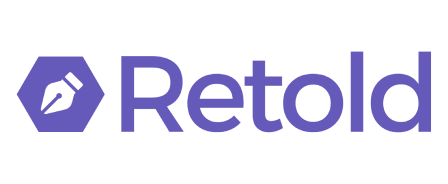Being an executive is like performing a high-wire act. On one side, there’s the expectation to be professional in everything you do, and on the other, the desire to showcase your unique personality along the way. Striking the right balance can be a challenge, but it’s a crucial one for building an authentic personal brand that resonates with your audience. To help you find the balance that you’re looking for, let’s dive into some practical tips for navigating this delicate act.

1. Know Your Brand Vibe
Before you can strike the right balance, you need to know what kind of balance you’re aiming for. What’s the vibe you want your personal brand to convey? Take a moment to define the values that matter most to you, both professionally and personally. Understanding this sets the stage for finding the equilibrium that feels right for you. And remember: just because something worked for one person, doesn’t mean it’ll work for you. The feel of your brand that you decide to go for should be unique to you.
2. Tell Your Story
Personal brands are more than just a list of achievements. They’re stories that resonate with people. Share your professional journey in a way that goes beyond the typical resume. Highlight the challenges, victories, and the lessons you learned along the way, and highlight what your audience can take from these experiences. Let your readers connect with the human side of everything you’ve done.
3. Social Media Strategy
Social media is a powerful tool for personal branding, but it requires strategic navigation. Every platform, including LinkedIn, X (previous Twitter), and Instagram, allows you to showcase yourself from both a personal & professional perspective. However, based on your unique audience, be intentional about what you share where, creating a well-rounded image that reflects both your professional insights and your everyday moments.
4. Embrace Authenticity
Authenticity is the cornerstone of any successful personal brand. Don’t be afraid to show the real you. Share not only your successes but also the challenges you’ve faced. Authenticity builds trust, making you more relatable and human in the eyes of your audience. Keep in mind that being authentic doesn’t mean needing to share every single detail about who you are and what you’ve been through. Be honest, but don’t feel pressured to share things that you don’t want to share.
5. Set Some Boundaries
Openness is fantastic, but it’s essential to set some boundaries. Determine what aspects of your personal life are off-limits and stick to those boundaries. Striking this balance allows you to be authentic without oversharing and compromising your privacy.
6. What Sets You Apart
Injecting personal touches into your personal brand doesn’t always mean sharing deeply personal stories. Showcase your hobbies and interests to let your audience get to know the real and complete you. Whether it’s your love for painting, weekend hikes, or a fascination with sci-fi, these glimpses into your personal life connect you with your audience on a more human level.
7. Stay True To Your Tone
Consistency is key. Keep your voice consistent across professional and personal communications. Whether you’re discussing industry trends or sharing a funny anecdote, let your personality shine through consistently. This cohesion strengthens your personal brand and reinforces the authenticity you’ve worked hard to establish.
Finding the right balance between your professional and personal self is an ongoing process. Be genuine, be you, and remember that the best personal brands feel like a natural extension of the person behind them. It’s not about being a different person at work and at home; it’s about being the best version of you, professionally and personally.

Not sure if your current content marketing strategy is where it should be?
Take just 10 minutes to complete this content marketing maturity assessment. Valued at €199, it’s yours completely free! This assessment will provide a clear understanding of your content marketing strategy’s strengths & areas for improvement, allowing you to drive more impactful & effective marketing campaigns.








